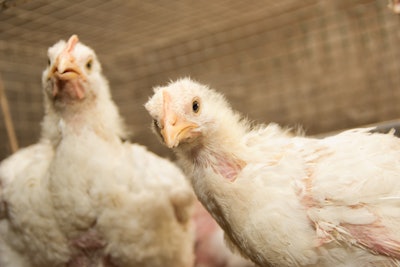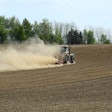
While multiple avian metapneumovirus (AMPV) vaccines have been recently authorized for importation and emergency use into the U.S., more research is still needed to help producers diagnose and manage the contagious respiratory disease.
Multiple approaches are necessary for a successful diagnosis, including looking for clinical signs, virus detection and isolation, serology and histopathology, explained poultry health consulting company Aviserve President Milos Markis at the 2024 Delmarva Chicken Association meeting.
Because several pathogens can cause similar clinical signs, the disease must be differentiated using additional evaluations, making virus detection and isolation difficult.
It is crucial to collect samples early in infection, he emphasized, as clinical symptoms can be easily missed. The virus is gone when producers start seeing swollen heads, he added.
“One thing that's worked well is collecting samples from healthy birds in the affected flock or going to a neighboring house on the same farm and collecting samples from those birds, because the virus transmits quickly.”
Markis suggests collecting whole heads or swabbings of the choanal cleft, sinus, turbine and ocular or nasal excretions.
Management and Control
Poor management and biosecurity practices will exacerbate the disease and increase mortality. Proper management will not always prevent infection but will affect livability and productivity of a flock, he explained. Markis recommends putting focus on ventilation, temperature, feed and water quality, litter quality and stocking density.
Concerning biosecurity, Markis said the industry does not know the best practices to control AMPV specifically, however, producers should continue to disinfect equipment and feed trucks, as well as have employees change their clothing, boots and shower between farms.
“We should try to prevent introduction and spread of the virus from wild birds and neighboring farms until we get better control measures in place.”
Vaccination options coming soon
Vaccines that will help producers manage AMPV will be available in the U.S. soon. In January 2025, the U.S. Department of Agriculture (USDA) authorized the importation of (AMPV) vaccines from two animal health companies: Boehringer Ingelheim and Zoetis.
According to Markis, infectious bronchitis virus (IBV) and Newcastle disease virus (NDV) vaccines may interfere with AMPV live vaccines, and more research should be conducted to understand the interactions.
Additional research is needed concerning the in ovo application of vaccines, he concluded.



















